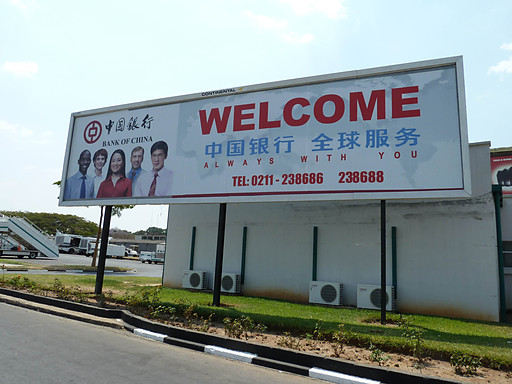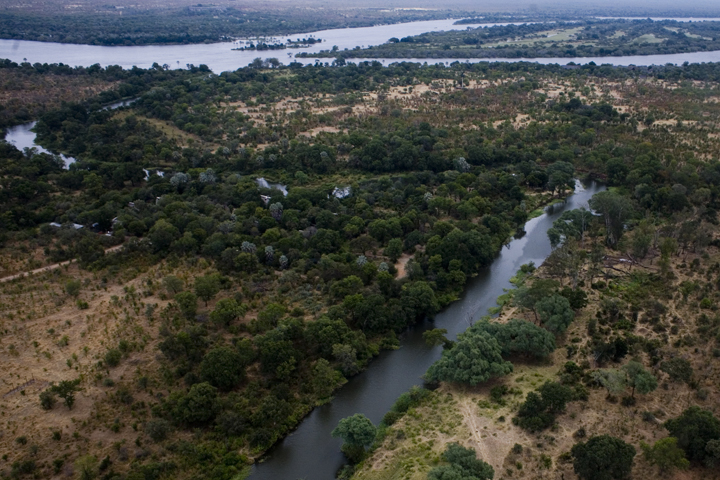
The billboard is impossible to miss when I arrive at the airport in Zambia's capital Lusaka. A giant advertisement for the Bank of China tells visitors, in both English and Chinese, "Welcome. Always with you." Friendly Chinese and Zambian faces smile down at me. Some days later, I am driving around Lusaka, counting the number of Chinese restaurants, Chinese doctors' offices, Chinese-run hotels, and Chinese private schools the car passes. I lose count. I'm a frequenter of African capital cities, and seeing the obvious visual stamp of Zambia's booming Chinese population is a new experience – though the Chinese have made inroads into countries all over Africa. It makes sense: an estimated 80,000-plus Chinese live in Zambia, and 500 Chinese companies operate here.
I came to Zambia to investigate a rash of alleged abusive incidents and a killing at Collum Coal Mine, a mine in southern Zambia that was once run by five Chinese brothers and has since been taken over by the government. (The brothers want it back.) But in order to find out what exactly happened at Collum, I need to understand the many sides of the economic and social relationship between the Zambians and the Chinese. A few weeks before I arrived, an article in the Zambian newspaper Daily Mail reported a recent Chinese investment deal with the title, "The Chinese are coming." And on the news website Zambian Watchdog, a fiery editorial by a woman named Laura Miti was re-igniting debate about the Chinese question. I met Miti, who wears a neat Afro and angular glasses, on a sunny morning at an office building in one of the leafy, placid quarters of Lusaka. Fiercely outspoken and ready to talk all day, she considers herself a commentator on issues important to everyday Zambians.
She told me a story. Zambia is currently drafting an updated constitution, and a constitutional conference meeting was held last month at a Chinese-run lodge. At the guesthouse, where she went to meet a friend, Luti said she saw several Chinese nationals unexpectedly carrying out menial jobs. One even made her lunch order, the national dish nshima. "I'm no expert," she said, looking into my eyes. "But my question is why, in a country that has such high levels, almost dangerous levels, of unemployment, are we employing waiters and cooks from China?"
"There are also a lot of Chinese competing with Zambians in informal trade," Miti went on, referring to Chinese businessmen who raise and sell chickens and who work in other sectors of the market traditionally dominated by unskilled Zambian women. Miti is a Zambian who works at an institution in South Africa that lobbies for government transparency, and as she told me, "I understand this is a global village. You cannot restrict labor. You cannot restrict expertise in any country." Still, she protested, "The job of the government is to protect its own people while benefiting from what the Chinese have to offer. Are we giving work permits to waiters? Are we giving work permits to bricklayers? Why?"
All the Zambians with whom I have talked admit that the Chinese have changed the face of Lusaka. Shiny stadiums, stocked hospitals, plenty of new jobs, and even revamped government buildings – the immediate effects are clear. "They are bringing development to Africa in a way that nobody else has done before," Miti agreed. The problem has emerged, for some Zambians, in the way the Chinese supposedly do business. There's a growing sense that the government has not protected its working citizens from the unsavory labor practices of some Chinese investors and employers, whether in chicken stalls or coal mines.
Miti explained: "I think there is a sense of unhappiness, but also a frame of mind that says, 'What can we do about it?'"




